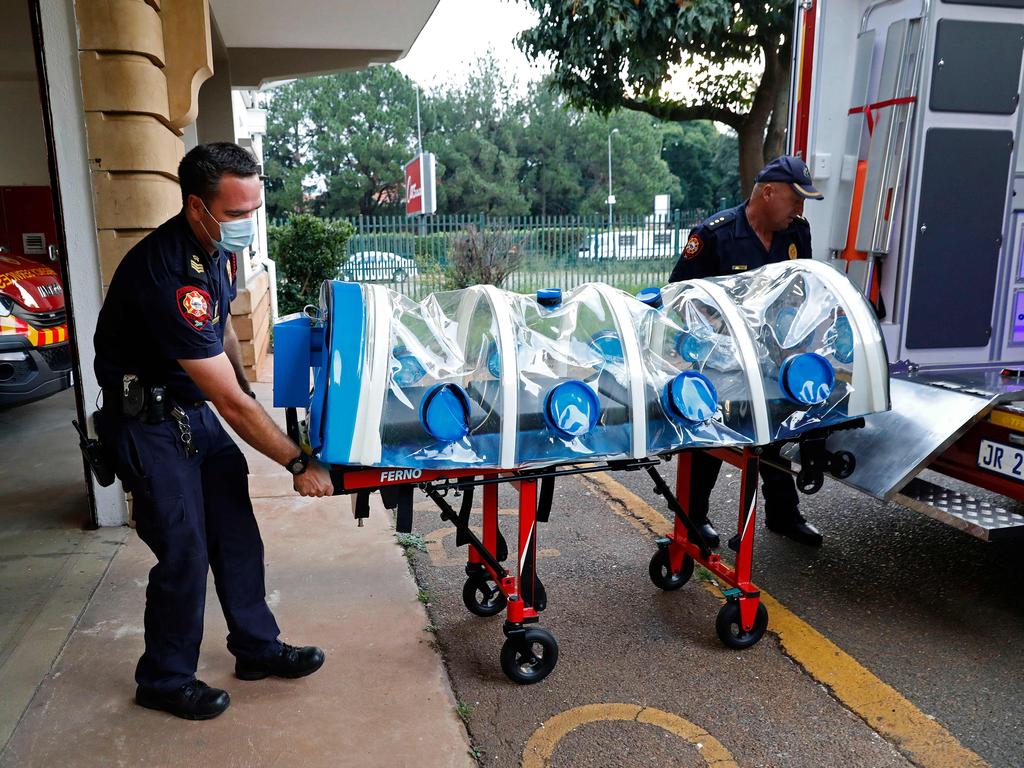Covid-19 developed mutations in HIV-positive patient, South African study suggests
The SARS-CoV-2 virus developed more than 20 mutations while infecting a young woman with uncontrolled HIV for nine months, a new study says.
A young South African woman with untreated HIV was infected with SARS-CoV-2 for nine months, during which the respiratory virus accumulated more than 20 additional mutations, a new study claims.
Once the 22-year-old was treated with antiretroviral therapy, her HIV was suppressed and her Covid-19 cleared within six to nine weeks.
The woman’s case, described in a preprint paper published on Monday, highlights the need for “increased vigilance” in treating HIV-positive patients to prevent the emergence of novel coronavirus variants, according to the researchers from Stellenbosch and the University of KwaZulu-Natal.
“Our case adds to the evidence that severe immunosuppression associated with uncontrolled HIV infection may lead to chronic SARS-CoV-2 infections,” the authors wrote in the study, which has not been peer reviewed.
“These persistent infections not only allow continued shedding of infectious virions [virus particles] but also lead to the accumulation of mutations, some of which lead to immune escape that may result in emergence of new variants. Therefore, it is important that countries that have a high burden of HIV infection should encourage prompt diagnosis and treatment of HIV infections and compliance with antiretroviral therapy for those already receiving treatment to reduce the risk of persistent SARS CoV-2 infections and continued shedding of infectious virus that pose a threat to controlling the pandemic.”

South Africa has the world’s worst HIV epidemic with an estimated 8.2 million out of 60 million infected, a prevalence of nearly 14 per cent.
The woman in the study, who was unvaccinated against Covid-19, was infected with HIV at birth.
She first tested positive for Covid-19 in January 2021 while in KwaZulu-Natal. She was admitted to a hospital in Cape Town in September, where she again tested positive.
Researchers determined that she was initially infected with the Beta variant of Covid-19 – which, as with Omicron, was first detected in South Africa – and that genomic analysis of multiple swabs confirmed “persistent infection over at least nine months rather than reinfection”.
“Over this period, the virus acquired at least 10 mutations in the spike glycoprotein and 11 mutations outside spike over and above the lineage-defining mutations for Beta,” they wrote.
Some of the additional mutations were similar to those seen in the Omicron and Lambda variants, allowing the virus to evade neutralising antibodies.
More Coverage
The researchers cautioned that there was “no evidence that the evolved variants from this case successfully spread into the general population”.
“This case, like others before, describes a potential pathway for the emergence of novel variants but it does not prove that any of the variants detected so far did originate from such a persistent infection in a severely immunocompromised host,” they wrote.





